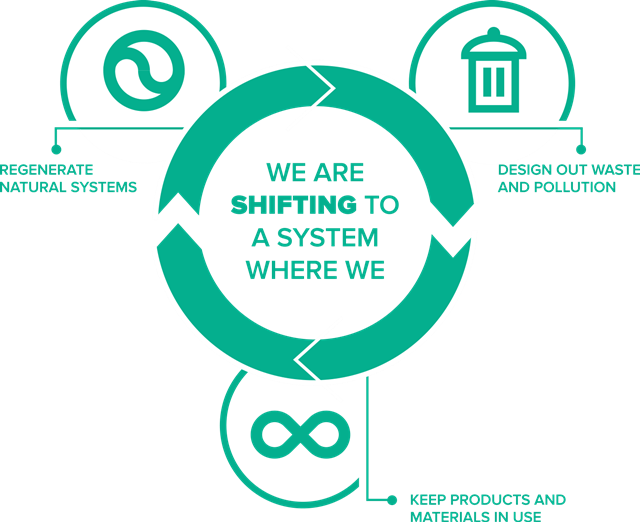18 June 2019. A challenge competition is seeking new businesses that disrupt the plastics recycling and energy storage industries with ideas based on a circular economy. The competition called the Circularity Challenge is a joint initiative of chemical company BASF, clean-technology startup incubator Greentown Labs, and consumer and industrial products manufacturer Stanley Black & Decker.
The circular economy aims to make products that restore and regenerate into other useful items or materials, instead of the linear product life-cycle of make, use, and dispose of a waste product. In fact, a driving principle in circularity, according to the Ellen MacArthur Foundation, is the elimination of waste as basic design element, where waste and pollution are considered design flaws. Another key concept in circularity is keeping products in perpetual use, encouraging repair and re-manufacturing, rather than wearing out a single-use product. And a third important principle is regeneration of natural systems, with processes that return the product as nutrients for its natural source.
“The circular economy is all about resource efficiency and implementing sustainable practices across value chains,” says Emily Reichert, CEO of Greentown Labs in a joint statement. “We believe deeply in the impact innovations across the circular economy can have on our planet and we are eager to see all the great ideas startups have to improve energy storage, plastics, and recycling value chains.” Greentown Labs in Somerville, Massachusetts says it’s the largest cleantech new-business incubator in North America, home to more than 90 start-ups.
The Circularity Challenge promotes participation by start-up enterprises with solutions that encourage production and recycling of plastics and energy storage devices like batteries into more of a circular economy model. Examples are new methods for recycling polymer plastics that today are not recycled, and processes that minimize contamination of plastics for recycling or enhance the performance of recycled plastics. For energy storage, examples are techniques for reviving rather than disassembling dead batteries and enabling more direct recycling of battery materials.
In addition, the challenge is seeking companies designing digital technologies that enable or support transformation from a linear to a circular model. These systems can be full-fledged platforms supporting a business’s conversion from a linear to circular economy, or more specialized technologies that, for example, simulate and predict a product’s recyclable potential. Another example is adding electronic sensors to battery parts or plastic goods to better monitor and manage their life-cycles.
Challenge-winning companies are eligible for acceptance into Greentown Launch, a 6-month business accelerator program at Greentown Labs, as well as $25,000 in grant funding. In addition, winning enterprises gain access to BASF labs and Greentown desk space, as well as contact networks through BASF, Stanley Black & Decker, and Greentown Labs. Participants in the program may also be considered for investment or collaboration with BASF.
Applications are accepted online, with an initial deadline of 30 August 2019. The initial program kickoff is 30 September, with 3 rounds of workshops through the Fall of 2019. The program’s final showcase is set for 30 January 2020.
More from Science & Enterprise:
- Efficient Carbon Capture Membranes Being Developed
- Economical, Sustainable Biochemical Process Devised
- A.I.-Aided Processes Reduce Chemical Reaction Time, Waste
- Infographic – U.S., Canada Top National Carbon Footprints
- Jet Fuel from Carbon Waste Powers Virgin Atlantic Flight
* * *


 RSS - Posts
RSS - Posts
You must be logged in to post a comment.